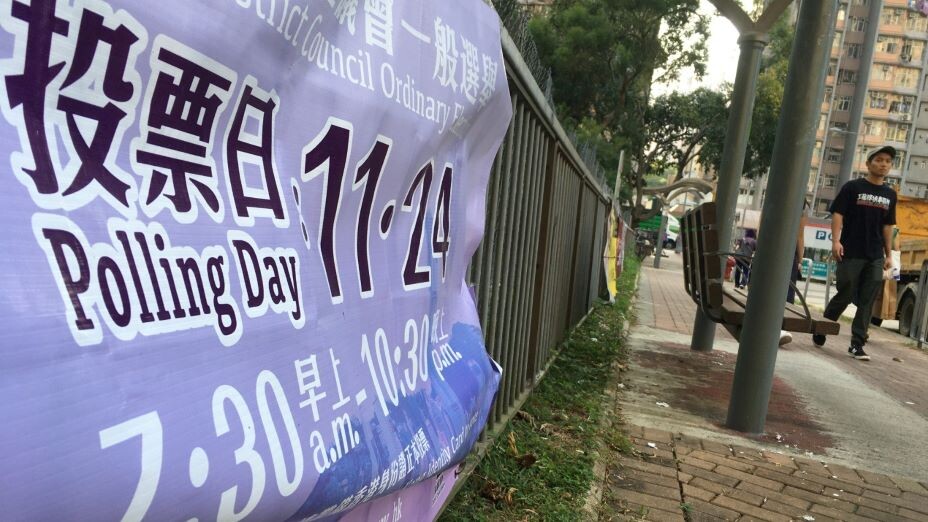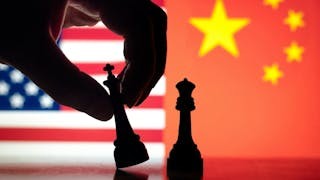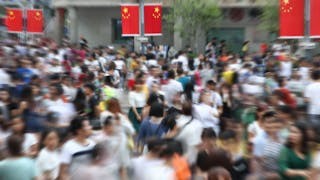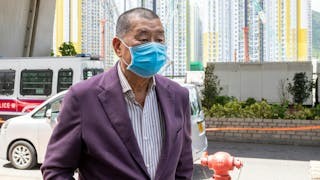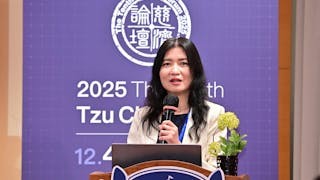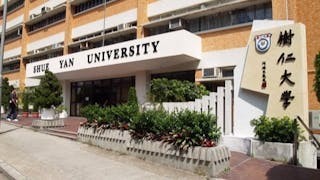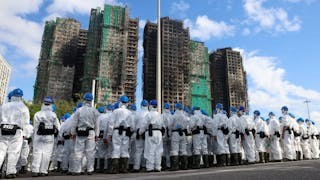儘管香港區議會改革旨在確保「愛國者治港」,防止「反中亂港分子」進入政治體制,然而其可能的後果是減低選民參與區議會選舉的意願;地區行政的集權化,不等於能保證更好地提供基層公共服務。
香港的區議會改革包括以下10個要點:
第一,委任議員、地區委員會界別議員和地方選區直選議員的比例約為4:2:2,即179個委任議席、176個地區委員會界別議席,分別來自三個委員會(分區委員會、地區撲滅罪行委員會及地區防火委員會,簡稱「三會」),以及 88 個地方選區直選席位。 此外,還有27名當然成員。總體而言,只有 19% 的區議會議席將由直選產生; 37%來自三個委員會; 38%由政府任命; 6% 的當然成員是新界鄉事委員會主席。地方選區直選議員將佔所有區議會議員的極少數。
第二,區議會選舉加入資格審查制度,即由地區委員會委員提名,確保候選人符合「愛國者」的標準。
第三,與以往區議會主席由議員互選產生不同,民政事務專員(主管各區民政事務處的高級公務員)將擔任區議會主席。過去港英政府曾採取這個制度,當時各區政務專員是政府處理地區事務的耳目。與以往不同的是,各區議會將不再設副主席。
第四,區議員的酬金和津貼與現時相若,表明對區議會的財政支持會繼續下去。目前,每位區議員的酬金為港幣 36710 元,另外還有港幣 48446 元的實報實銷開支。
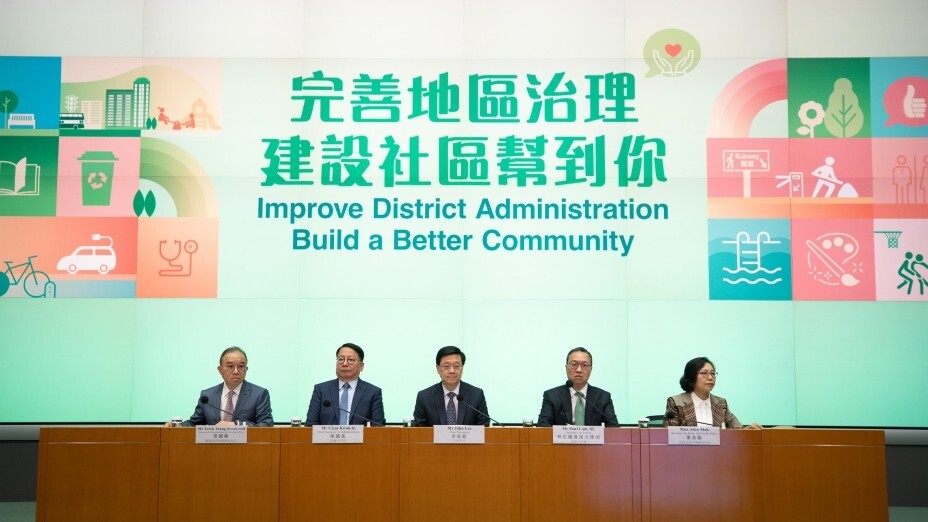
第五,引入履職監察制度,對議員的行為和表現進行制度監察。具體而言,區議員不得妨礙其他區議員和政府官員出席或離開會場;不得騷擾、侮辱和辱罵出席會議的議員和官員。此外,區議員不得在未經區議會主席批准的情況下打斷他人的講話。他們也不可以拒絕履行區議會主席指派的工作。區議員如經常無故缺席會議,會受到處分。如果觸犯香港法例,他們亦會失去成為區議員的資格。此外,如果他們濫用資源為自己謀取利益,不符合區議會職能而作出不恰當的宣傳,就會受到處罰。
懲罰機制如下:區議會主席在收到3名成員的聯署並獲得區議會的半數議員的同意後,即可轉介監察委員會對行為表現「不符合公眾對區議會期望」的議員展開調查。隨後4名其他地區的區議員及一名獨立人士組成調查委員會,向民政及青年事務局局長匯報。調查委員會的建議將包括勸喻、警告、罰款甚至停職。如果當事人認為裁決不公平,可以向政務司司長提出上訴。
第六,任何參加地區直選的區議會候選人都需要由至少3名分區委員會委員、3名地區撲滅罪行委員會委員和3名地區防火委員會委員 ,以及50名地方選區選民提名。過去,參加區議會選舉的候選人只需選舉主任批准,獲得地方選區的 10 名選民提名即可。
第七,作為諮詢機構的區議會將不再有權通過地區參與計劃和地區小型工程計劃分配到財政資源。換句話說,區議會的財政功能將受到限制。
第八,在地區層面,將有一個由政務司司長主持的地區治理領導委員會和一個由政務司副司長主持的地區治理專組。地區治理專組將根據地區治理領導委員會定下的策略方針,指揮及統籌相關政策局及部門,制定相應的地區治理政策和措施。
第九,保留原先與區議會並存的地區管理委員會。 地區管理委員會將繼續由民政事務專員擔任主席,其成員將來自區內的政府部門。
第十,在新冠疫情期間成立的18區關愛隊將由民政事務專員管理和監督。
改革令直選比例大幅下降
新改革的影響如下:
首先,選民參與直選投票的意願可能會受到抑制,因為區議會只有19%的席位是直選的。 如果一些選民認為區議會在政治上毫無用處,他們的投票意願就會受到限制。當然,如果政黨和團體動員他們的支持者在區議會選舉中投票,那麼選民投票率可能會增加。此外,如果一些民主派人士決定參加區議會直選,他們的參與將有可能有助於提高區議會選舉的投票率。不過,總的來說,由於直選席位大幅減少,區議會將大大失色。從西式民主化的角度來看,借用已故政治學家塞繆爾·亨廷頓的話,區議會改革是「開民主倒車」。
其次,雖然改革明顯排除了所有「反中亂港分子」參選,但問題的癥結在於,整個改革是一個行政集權的過程,不能保證地區政府部門會回應訴求和批評。 區議員無論是直選、間選還是任命,理想情況下,政府應確保議員提出的要求和批評會引起地區政府部門和官員的回應,並明確說明跟進行動。所有這些回應和跟進最好在區議會網站上公布,以驗證香港式的民主。如果拒絕西式民主,堅持和實行港式民主,特區政府就應該真正做到問責到位。否則,區議會很可能會淪為聊天室,對地區政府部門影響不大。
提高「三會」的透明度
第三,雖然上述政府部門對區議會的問責是必須的,但普羅市民對區議員的問責將是另一個大問題。除了直選區議員通過直選對普通市民負責外,問責問題將出在委任議員和「三會」議員身上。特區政府最好明確區議會委任議員的標準,包括性別、職業、年齡組別、種族背景等的差異。另外,不屬於親北京和建制派的政治團體是否會被委任? 還是在政治上被排除在委任之外? 是否所有「三會」議員的委任都需要一個資格審查委員會的認可?
否則,普羅市民和大眾傳媒都不知道委任的標準。 同樣,政府應公開任命社區活躍人士和社會精英進入「三會」的標準。 目前,這三個委員會並不為普羅市民和傳媒專業人士所熟知,他們可能願意參加 「三會」的會議。 因此,政府最好從現在開始開放「三會」的會議,並將其信息放在適當的網站上,同時提高「三會」的透明度和問責性。不然,地區行政將成為一個沒有太多公眾問責且非常複雜的架構。
第四,如果公共行政的目的是改善政府為基層市民提供的服務──前港督麥理浩引入區議會選舉的初衷──那麼特區政府,包括由政務司司長和政務司副司長主持的兩個委員會,如何確保這樣的公共服務會不斷改善?當前改革的癥結在於集權化,政府服務的改善無保障。因此,地區官員的作用將有待觀察和評估。政務司司長、政務司副司長,尤其是民政及青年事務局局長,會如何評估地區層面的民政事務專員表現? 不論區議會議員是委任、間接選舉或直接選舉產生的,這種績效考核是否會由政府內部以自上而下的方式進行,而無需徵求區議會議員的意見?
第五,如果政府以缺乏居民參與管理大廈為由解散了互助委員會,那麼18區關愛隊是否會取而代之? 「三會」的委員會不會是來自不同大廈的住戶? 一方面是大廈的住戶,另一方面是 18區關愛隊和「三會」委員,他們之關的關係又是什麼?
總而言之,區議會改革都是為了落實「愛國者治港」,防止「反中亂港分子」滲入政治體制。 儘管如此,希望改革不會妨礙選民參與投票,特別是考慮到直選議員在所有區議會中都佔極少數這個無可否認的事實。最重要的是,通過確保和加強政府部門回應區議員的要求、建議和批評,港式民主仍有待實現。 區議會議員,尤其是委任和間接選舉產生的區議員,對於普羅市民的問責仍然是一個被忽視的問題,必須加以解釋、處理和加強。 新的地區行政架構很複雜,但不同組織之間的相互關係,包括新成立的18區關愛隊,仍然不明朗。同樣,民政事務專員向民政及青年事務局局長負責,似乎多於向區議員負責。這些問題如今在絕大多數建制派精英的一片讚揚中被忽視,但這些問題也將大大影響香港在政治新時期中民主的程度。
OPINION – The reform of District Councils in Hong Kong: Implications and neglected issues
While the reform of District Councils (DC) in Hong Kong aims at enhancing the rule of “patriotic” elites and preventing the “troublemakers” from entering the political system, the implications are that voters’ willingness to participate in DC elections would likely be weakened and that the centralization of district administration will unlikely guarantee the better delivery of public services at the grassroots level.
The reform of District Councils in the Hong Kong Special Administrative Region (HKSAR) entails ten main points.
First, the proportion of appointed members, indirectly elected members and directly elected members will be 4:2:2, meaning that there will be 179 appointed seats, 176 indirectly elected seats coming from three bodies (Area Committees or AC, District Fight Crime Committees or DFCC, and District Fire Prevention Committees or DFPC), and 88 directly elected seats. Moreover, there will be 27 ex-officio members. Overall, only 19 percent of the DC seats will be directly elected; 37 percent coming from the three bodies; 38 percent appointed by the government; and 6 percent ex-officio members who are the chairpersons of the Rural Committees in the New Territories. Directly elected members will constitute a tiny minority of all the members of DCs.
Second, an eligibility inspection system will be injected into the DC elections, meaning that this committee will screen the candidates and ensure that they will meet the criterion of “patriotism.”
Third, unlike the past when the DC chairs were elected from among members, District Officers (DOs) – the senior civil servant dealing with each of the District Office – will be the chairperson of the DC. This system was adopted by the British colonial administration in Hong Kong in the past when Dos were the eyes and ears of the government in dealing with district affairs. Each DC will no longer have the deputy chairperson, unlike the situation in the past.
Fourth, the salaries and subsidies of DC members will be like the current situation – a sign that their financial support will persist. Currently, each DC member has a stipend of HK$36,710 and an additional amount of HK$48,446 for reimbursement.
Fifth, there will be a duty supervision mechanism in which DC members’ behaviour and performance will be checked by the rules and regulations. Specifically, DC members cannot hinder other members and government officials to attend or leave the meeting venue, and they will be disallowed to harass, insult and abuse members and officials who will attend the meetings. Furthermore, DC members will not be allowed to misbehave by interrupting the speech of others without the chair’s approval. Nor will they be permitted to ignore the work designated by the chair. DC members will be penalized if they are often absent from meetings without justifications. They will also lose their eligibility of becoming DC members if they violate the Hong Kong law. Moreover, if they abuse the usage of resources to benefit themselves, and if they make inappropriate publicity without conforming to the DC functions, then they will be subject to being punished.
The mechanism of punishment will be as follows: the DC chair will trigger this mechanism after receiving the joint signatures of three members and such a move will be approved by half of the members of a DC. Then four DC members and one independent member will form an investigatory committee and report to the Secretary for Home and Youth Affairs. The committee’s recommendations will embrace the possibility of exhorting the member concerned to behave, warning him or her, levying a fine, or terminating the member’s office. If the affected DC member perceives the penalty as unfair, he or she can appeal to the Chief Secretary.
Sixth, any candidate running for the DC direct election will need to be nominated by at least 3 members from the AC, 3 members from the DFCC, 3 members from the DFPC, and 50 citizens from a geographical constituency. In the past, a candidate running for DC elections was required to only secure 10 nominations from 10 citizens in a geographical constituency with the approval of the election officer.
Seventh, DCs as consultative bodies will no longer have the power to allocate financial resources through the district participation scheme and the district’s small project scheme. In other words, the financial function of DCs will be restricted.
Eighth, at the district level, there will be a District Governing Leadership Committee chaired by the Chief Secretary and a District Management Special Group chaired by the Undersecretary for Administration. They are going to lead the work of governmental departments at the district level.
Ninth, the previous District Management Committees that existed side by side with DCs will be retained. These committees will continue to be chaired by District Officers and their members will come from government departments at the district level.
Tenth, the 18 caring teams that were set up during the outbreak of Covid-19 and its variants will be under the management and supervision of the District Officers.
The implications of the new reform are as follows:
First, the willingness of voters to cast their ballots in direct elections will likely be curbed, because only 19 percent of the seats in DCs will be directly elected. If some voters perceive DCs as politically useless, their willingness to vote will be curbed. Of course, if political parties and groups mobilize their supporters to vote in DC elections, then the voter turnout would likely be better. Moreover, if some democrats decide to participate in DC direct elections, their presence will likely help boost the voting turnout in DC elections. Still, overall, the brightness of the previous DCs will be diluted significantly due to the drastic decrease in directly elected seats. From the perspective of Western-style democratization, the reform constitutes a “reverse democratization,” to borrow from the late political scientist Samuel Huntington.
Second, while the reform obviously excludes all those “troublemakers” from electoral participation, the crux of the problem is that the entire reform constitutes a process of administrative centralization without any guarantee that government departments at the district level will be responsive to the demands and criticisms of council members, regardless of whether they will be directly elected, indirectly elected, or appointed. Ideally, the government should ensure that the demands and criticisms made by councillors will entail the responses of government officials and departments at the district level with follow-up actions to be stated clearly. All these responses and follow-up actions should ideally be published in the DC websites to experiment with a Hong Kong-style democracy. If Western-style democracy is rejected, and if Hong Kong-style democracy is upheld and practised, the HKSAR government should really ensure that accountability will be in place. Otherwise, DCs will likely become talk shops without much influence on government departments at the district level.
Third, while the accountability of government departments to DCs as mentioned above will be a must, the accountability of council members to the ordinary citizens will be another big issue. Except for those directly elected members whose accountability to ordinary citizens will be held through direct elections, the problem of accountability will stem from those members returned from appointments and the three bodies. The HKSAR government should ideally clarify the criteria of appointing members to DCs, including a spread of gender, occupations, age groups, ethnic background, etc. Also, will political groups that are not belonging to the pro-Beijing and pro-establishment sectors be politically excluded from appointments? Will all the appointments to the three bodies also need the endorsement of an eligibility inspection committee?
Otherwise, ordinary citizens and the mass media would have no idea of the criteria of appointments. Similarly, the government should publicize the criteria of appointing community activists and societal elites to the three bodies. At present, the three bodies are not well known to ordinary citizens and media professionals, who may like to attend the meetings of AC, DFCC and DFPC. As such, the government should ideally open the meetings of the three bodies from now on, put their information on appropriate websites, and enhance the transparency and accountability of the three bodies. Otherwise, district administration will have a very complicated structure without much public accountability.
Fourth, if public administration aims at improving the delivery of government services to citizens at the grassroots level – an original intent of Governor Murray MacLehose when he introduced District Board elections – then how will the HKSAR government, including the two Committees to be chaired by the Chief Secretary and the Undersecretary for Administration, ensure that such delivery of public services will be continuously better? The crux of the problem of the current reform is that there is centralization without any guarantee on the improvement of government services. As such, the role of the District Officers will remain to be seen and evaluated. How will the Chief Secretary, Undersecretary for Administration, and particularly the Secretary for Home and Youth Affairs evaluate the performance of District Officers at the district level? Will such performance appraisal be done at the top-down manner by the government internally without any input from the DC members, regardless of whether they are appointed, indirectly elected, or directly elected?
Fifth, if Mutua Aid Committees were abolished by the government on the ground of lacking resident participation in managing their buildings, then will the 18 caring teams replace them? Will the members of AC, DFCC and DFPC come from residents from various buildings? What will be the interrelationships between the residents’ buildings on the one hand and the 18 caring teams, AC, DFCC and DFPC on the other hand?
In conclusion, the reform of District Councils is all expected to enhance “patriotic rule” and to prevent all those “troublemakers” from penetrating into the political system. Nevertheless, it is hoped that the reform will not deter the voters from participating in casting their ballots, especially considering an undeniable fact that directly elected members will constitute a tiny minority in all DCs. Most importantly, the Hong-Kong style democracy will remain to be actualized by ensuring and enhancing the responsiveness of the government departments to the demands, suggestions, and criticisms of council members. The accountability of council members, especially those appointed and indirectly elected, to the ordinary citizens remains to be a neglected issue that will have to be clarified, tackled, and enhanced. The new structures of district administration are complex, but the interrelationships between the various bodies, including the new 18 caring teams, remain ambiguous. Similarly, the accountability of District Officers appears to be held more internally to the Secretary for Home and Youth Affairs than to the council members. All these issues are now neglected amid a chorus of high praise by an overwhelming majority of pro-establishment elites, but they will also become crucial shapers affecting the degree of Hong Kong democracy in the new political era.
原刊於澳門新聞通訊社(MNA)網站,本社獲作者授權轉載。



